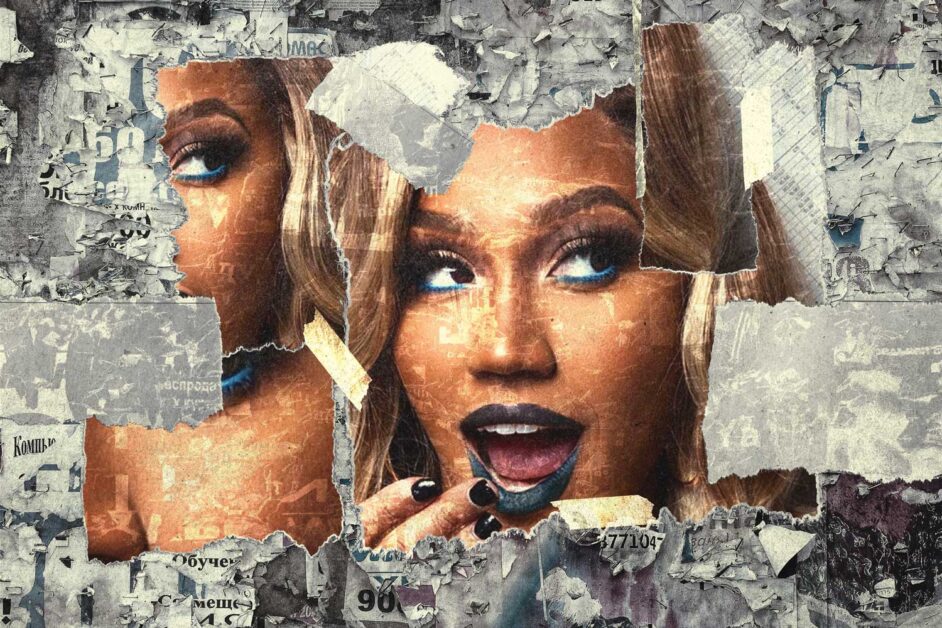Anatomy of a Fall review: an intelligent psychodrama
Written by on May 30, 2023
Sign up for Sight & Sound’s Weekly Film Bulletin and more
News, reviews and archive features every Friday, and information about our latest magazine once a month.
If Marriage Story (2019) were a murder trial, it might look a little like Anatomy of a Fall, Justine Triet’s gripping, sharply intelligent psychological drama, which collects itself in fizzing arcs of strange electricity around a brilliant, edgy but elusive Sandra Hüller. A woman stands accused of killing her husband. Her 11-year-old son, a key witness who was blinded in an accident some years prior, listens in the courtroom. Lawyers rant, theorise and nitpick (after Alice Diop’s peerless Saint Omer (2022) this is an equivalently forensic depiction of the French legal process). But what is really being dissected is the mystery that is other people’s passions. Where does responsibility lie when a marriage sours? Did love fall away, did it jump, or was it pushed?
Sandra (Hüller), a successful novelist, is being interviewed by grad student Zoé (Camille Rutherford) in the partially renovated chalet in the French Alps that Sandra shares with her French husband Samuel (Samuel Theis) and their son Daniel (Milo Machado Graner). Despite the domestic setting, the interview is part seduction. Sandra’s gaze is flirtatious. She is quick to bounce questions back on her pretty interviewer – especially those ethical inquiries about an author’s right to repurpose real life as fiction, which she wants to shrug away.
Suddenly, music blares out at ear-splitting volume from upstairs. It is, as a bitter in-joke, a steel-band cover of 50 Cent’s misogynist classic P.I.M.P. and though Sandra first ignores it, then feigns exasperated amusement, eventually it forces her to halt the interview. As Zoé leaves, she passes Daniel taking his dog Snoop for a walk in the dazzling snow, the border collie’s pale blue eyes uncannily evoking the boy’s impaired vision. When Daniel returns, his father lies dead beneath the attic window where he was working, blood staining the snow.
A year later, Sandra stands in the dock. A native German with fluent French but even better English, she code-switches in fascinating ways: does her reversion to English at key junctures signal better communication of the truth? Or is it the language in which she can more easily lie? As the ruthless prosecution advocate (Antoine Reinartz, a cleverly counterintuitive casting choice) locks horns with Sandra’s lawyer and old friend/flame Vincent (an excellent Swann Arlaud), every piece of evidence is opened to opposing, equally plausible interpretations, and the credibility of each witness, especially Sandra, becomes more important than the facts.
Even when the prosecution deploys its smoking gun, a riveting taped argument between struggling writer Samuel and his more successful wife, in which he accuses her not only of cheating but of “plundering” from him the novel that made her name, the defence’s quick recontextualisation casts new light. Samuel, recording Sandra without her knowledge, was potentially gathering material for his own stalled literary career and therefore may have engineered the fight. It pivots on the hot-blooded drama of violent death, but Anatomy of a Fall’s searing screenplay – co-written by Triet and her husband Arthur Harari – also takes a scalpel to professional jealousy and writerly ego, and along these deep incisions Sandra and Samuel’s marriage splits open, its ugliness spilling out like viscera. Can mutually agreeable fair-use between husband and wife become, in a moment of anger, a “plundering”? Can it ever not?
Sitting in the courtroom, there’s a grieving boy. Daniel, having had the unreliability of his own recollections cruelly demonstrated, must essentially choose between damning his dead father by insisting on his suicide, and condemning his unknowable mother by implying murder. ‘Facts don’t care about your feelings’ has become a catchphrase in our spiteful age, but here, feelings are the only facts that matter.
Simon Beaufils’s restless camera constantly shifts our vantage, at one point swinging from left to right on witness Daniel as questions volley in from opposing sides; at another, tracking Snoop from room to room to give us a dog’s-eye point of view (here, even canine motivations become deeply germane). Usually, this kind of mobile, participatory camerawork is used for florid, emotive effect, but Anatomy of a Fall is as cerebral and ambivalent as its central turn from an irreplaceable Hüller. Sandra maintains her innocence, but is such a shrewd, worldly woman that ‘innocent’ is not a label that suits her. In every sympathetic reaction, a sliver of manipulation; in every flash of hot temper a glimpse of something cold. Yet in the rare moments when Sandra is alone, away from anyone’s judgemental gaze, she is neither monstrous nor pitiful. She’s an empty outline on an anonymous hotel bed, methodically eating a supermarket sandwich.
Between the absolute poles of ‘guilty’ and ‘not guilty’ lies a many-shaded spectrum of culpability and complicity. In vivid, clean lines, Anatomy of a Fall navigates this moral morass and exposes the absurdity of trying to pluck from it a simplistic, binary verdict. Is Sandra a loving mother, a murderous wife, an egotistical creator, a guilt-ridden destroyer? Tick all that apply. Triet handles with magnificent certainty the feeling/fact that none of the great three-word statements – I love you, I hate you, I forgive you, I am sorry – exists to the exclusion of any of the others.
Originally published: 29 May 2023
watch avatar the way of water full movie
watch avatar the way of water full movie
watch avatar the way of water full movie





